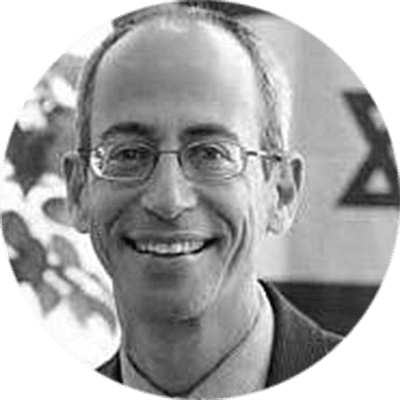A Lesson from Chelm: The Secret Recipe for Professional Development that Works
One of my favorite children’s Chelm stories is “Malke’s Secret Recipe,” by David Adler which tells the story of Malke, who was known for her delicious, succulent, and soft latkes. The only problem was that she would not share the recipe. One Chanukah, Berl the shoemaker devised a scheme to steal the recipe. He’d spy on Malke from her kitchen window as she made the secret latkes and write down ingredient after ingredient along with the instructions.
Berl set out on his reconnaissance mission, brought home the recipe, and began to prepare the latkes. However, just as Berl was about to add chopped scallions, his wife Yentel objected that he must have made a mistake. No one uses scallions, only onions. And just as he was about to add flour, Yentel stopped him and told him to use bread crumbs instead. This pattern recurred with each ingredient–the lemon, the parsley, the pepper, the oil. Yentel kept telling him that latkes aren’t made that way, “That’s not a secret recipe. That’s secret nonsense!” When Berl finished making the latkes, the family sat down only to find that there really wasn’t anything special about Malke’s latkes. They tasted rather ordinary, no different from the latkes everyone had always made.
I think about this story often in conversations about professional development. A large body of research has been amassed that reveals that most professional development doesn’t work. There are several reasons why this is so. Firstly, most professional development is not tied to a specific student learning need. Good PD starts with the question: What problem are we trying to solve? Or, to say it differently, what do teachers have to learn in order for students to learn what we want them to learn? Secondly, good PD is ongoing and sustained. Teachers try out something, learn from their success or failure, learn something new, try it, and so on.
But the third reason most PD doesn’t work is that it is hard to break old habits. Real learning is about disrupting current practices and assumptions. Real learning often involves a measure of discomfort. It demands that we make our beliefs about student learning explicit and allow those beliefs to be examined by someone other than ourselves so that we make space in our heads for new knowledge. It requires us to interrupt our past practice in a deliberate and intentional way. And that’s hard to do.
I have a friend who seeks my advice on marathon training once a year. I hand over without reservation the equivalent of Malke’s secret recipe. I don’t make him spy out my training practices. I tell him explicitly how to do it and what the marathon bible says. And just like Yentel, my friend says to me: “I know you said I should start training 16 weeks in advance, but I’m going to train for 10 weeks. I know the book advises that I should take walk breaks for a minute every five minutes of running from the start of the race so that my muscles don’t fatigue, but I’m going to take walk breaks only when I get tired.” And sure enough, the day after the race he echoes the equivalent of Yentel’s words, “That’s not a secret recipe. That’s secret nonsense!” He ran as poorly as he did previously.
Steven Katz and Lisa Ain Dack, two faculty members at the Ontario Institute for Studies in Education at the University of Toronto, authored a short monograph called “Intentional Interruption: Breaking Down Learning Barriers to Transform Professional Practice” (Corwin Press, 2013). They show what schools need to do in order to devise PD that leads to an improvement in student achievement.
If our students, for example, have a hard time learning fractions despite our best efforts, then it may mean we are going to have to think about fractions differently and learn a new way of conceptualizing them so that students can gain the necessary skills.
Katz and Dack say it this way:
It’s important to understand that teachers teach what they know about a concept. Changing teaching means changing the understanding that underlies teaching….If teachers are going to teach fractions differently (so that students understand fractions differently), then teachers need to learn something new about fractions and about teaching fractions. If they don’t learn something new, then they don’t have any basis on which to make a change in their classroom practice.
The reason why professional development is so often ineffective is that it tends not to be about learning. It’s an activity. It’s not set up to teach us how to make a permanent change in professional practice. It doesn’t teach us how to tear down the range of cognitive biases that we employ to conserve, preserve, and even reinforce our current practice and avoid change. It doesn’t provide us with strategies that can be used when we get back to school that will help us interrupt those biases and support us to try out new practices, make mistakes, learn from them, improve our practice, and help our students learn better.
The real question of professional development is what’s happening inside us. Are we constructing new knowledge? Does the new knowledge change our assumptions, beliefs, and practices in a permanent way or preserve them?
As we engage in PD this year or plan for the future, we should ask ourselves if we are ending up making the same latkes as we made in the past. Has anything changed permanently in our practice as a result? If we design the type of learning, scaffolding, and professional culture that will alter the way we think and behave in a permanent way, then we will have discovered the secret of Malke’s recipe and we can expect our students to reap its benefits.


